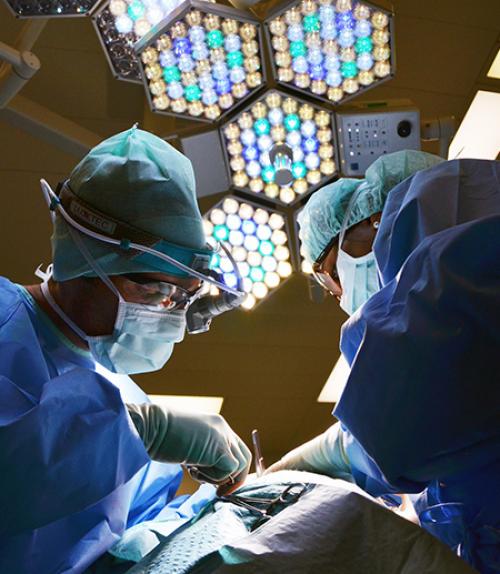Four collaborative, cross-disciplinary faculty projects have received funding support through the New York City Visioning initiative. The projects were selected by President Martha E. Pollack from a group of finalists recommended by the President’s Visioning Committee on Cornell in New York City. The awards, totaling $265,000, were announced June 6 by President Pollack.
The projects will expand learning and research opportunities in New York City for faculty and students, and complement work in Ithaca during the 2019-20 academic year.
“The Visioning Committee received very strong, creative proposals to advance our goal of ‘One Cornell,’ and the four selected projects span the sciences and technology, arts and humanities, law and medicine,” Pollack said. “I am grateful to the committee and excited about these innovative projects, which will expand Ithaca-New York City engagement through meaningful collaborations and partnerships.”
In the fall of 2017, Pollack created and charged the 12-member committee of faculty from the Ithaca campus, Cornell Tech and Weill Cornell Medicine to envision what the university’s presence in New York City might look like over the next decade.
The committee held open forums and surveyed faculty, staff and students in Ithaca and New York City to identify and recommend collaborative opportunities that complement, enrich and enhance the work of the Ithaca campus in educational, research and public engagement programs.
In response to a call for proposals, 30 projects were submitted; three projects will receive the full amount requested, and a fourth has been given seed funding. The projects are:
Enhancing Care and Advocacy for Immigrants and Asylum-Seekers
The project is a medical-legal partnership of the Weill Cornell Center for Human Rights (WCCHR) and Cornell Law School. Submitted by Dr. Joseph Shin, assistant professor of medicine and WCCHR co-medical director, the proposal builds on recent sharing of information and expertise between two successful programs working on behalf of immigrants. A joint leadership team recommended creating a formal program to continue this work.
WCCHR students and faculty have assisted asylum-seekers and other detainees with human rights abuse cases through more than 500 pro bono forensic examinations since 2010, and Law School students have engaged in advocacy for real clients with real legal problems since the 1960s. The Law School’s Clinical Programs have served communities with clients subjected to deportation, trafficking, worker exploitation, persecution, torture and capital punishment-related proceedings.
The partnership will provide interprofessional training and opportunities for experiential service-based learning, and produce research and real-world outcomes impacting health equity, human rights and legal scholarship.
Human and Machine Improvisation in Action
Proposed by Guy Hoffman, assistant professor of mechanical and aerospace engineering, with assistant professor of music Marianthi Papalexandri-Alexandri, the project aims to set the foundation for a long-term interdisciplinary collaboration between artists, engineers and the public. Participants will be engaged in stretching the boundaries of improvisation and research on the impacts of human improvisation and its correlation to sound and machines.
The project includes improvisation workshops in the fall, with the International Contemporary Ensemble and Theater at the 14th Street Y in Manhattan as collaborative partners; a course in building improvising sound machines in the spring; and public performances.
Project goals include extending the state of the art in artificial intelligence research, expanding existing concepts of musical improvisation and sound making, and promoting learning and conversations across fields (music, information science and engineering) and colleges.
Biodiversity Studies Using Interdisciplinary Research Designs
The Ecosystem Services Costs of Nightlights in New York City: Cornell Lab of Ornithology research associate Andrew Farnsworth proposed “a high-profile pilot study to quantify impacts of artificial light in Manhattan on behaviors and numbers of nocturnally migrating birds.” Co-investigators on the proposal are Catherine Kling, the Tisch University Professor of Environmental, Energy and Resource Economics; and Ivan Rudik, assistant professor of environmental economics, both in Cornell’s Dyson School of Applied Economics and Management.
Advancing previous collaborative research at the Lab of Ornithology, the project will be “a first step toward developing a full-fledged interdisciplinary research program.” The team will work with citizen-scientists, and the project will expand efforts to understand the effects of human activity and society on avian behavior and on biodiversity globally.
The Medical Humanities
A project submitted by Caroline Levine, professor of English, and Bruce Lewenstein, professor of science communication, received a $5,000 seed grant to develop a pilot collaboration between Weill Cornell Medicine and Ithaca-based faculty who are teaching at the intersection of humanities and medicine. Seeking “to nurture broad-minded, culturally sensitive practitioners,” the proposal foresees opportunities for courses with mutual benefits for Ithaca campus and Weill Cornell Medicine students.
“We were delighted to have received so many high-quality projects and that the process enabled us to reach an easy consensus and be confident about the viability of the proposals we forwarded to President Pollack,” said committee chair Noliwe Rooks, professor of Africana studies and director of the American Studies Program. “We are pleased to have been able to contribute to the university’s efforts in enhancing opportunities for faculty and students to engage across colleges and campuses.”




